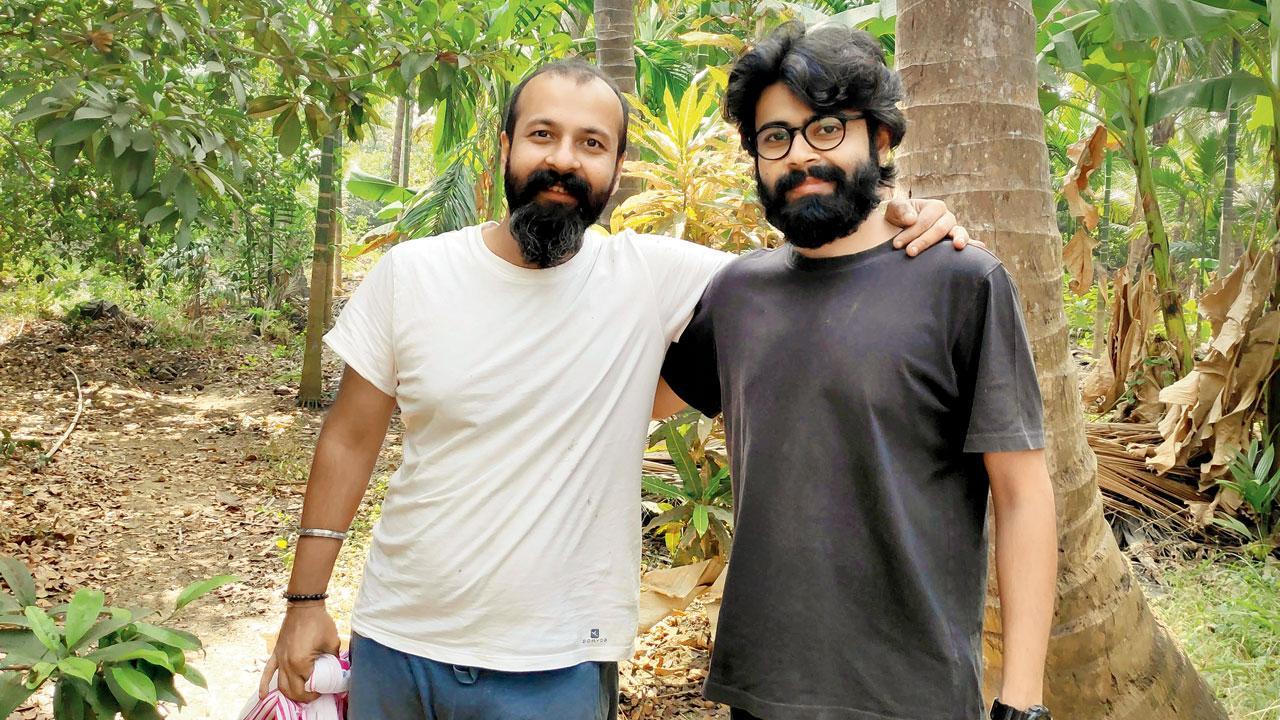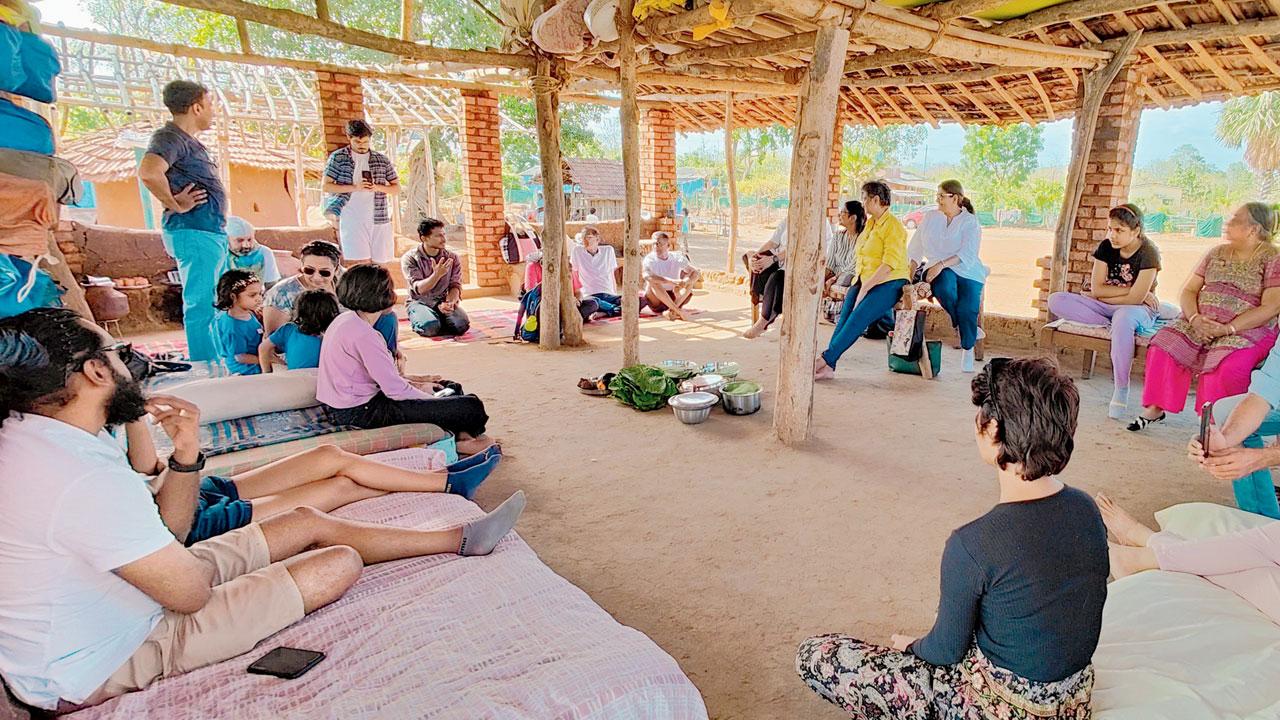Organic food produce firm, Monks Bouffe, now takes you into the Sahyadris to see how the indigenous Thaakars pick and eat the season’s bounty from decidous Deopada

Gaurang and Saurabh Motta
The love of food, epicureans will swear, lies not just in savouring it but also in witnessing the cooking process first hand. Located 25 km from Karjat, the thick deciduous forests of Deopada, seven-feet karvanda bushes, and robust cicada songs contribute to an unforgettable experience of the Sahyadris, which make up Monks Bouffe’s monthly nature walks.
Gaurang Motta and his older brother Saurabh founded Monks Bouffe, an organic grocery products platform, in 2016. Last year, the brothers began organising walks into the Sahyadri forest guided by Thaakar tribals, who’ve called the area home for centuries. Previously, the brothers would only take a few of their customers on these trails to show them where their products come from. “Food is very integral to each one of us,” Gaurang explains. “We wanted to connect people to its source, i.e. the land.”

The Sahyadri forest spans the Western Ghats and is considered one of the world’s top 10 biodiversity hotspots. It is not just a walk through the forest though. The participants are first required to share why they want to spend their Sunday in the pursuit of nature. Mostly often, for children, it’s the Enid Blyton dream they’ve read about that they want to see in real life. Adults want to see the verdure of the Sahyadri up close. And of course, any true blue foodie wants to observe foraging wild forest foods and enjoy a lunch or breakfast using them as ingredients.
The Sahyadri contains several unique species of flora, such as the native mahua tree found only on the Indian subcontinent, plus about 30 species of wild vegetables, herbs, tubers, and leafy greens. No human plants these veggies intentionally, they spring up, nurtured by Mother Nature year after year.
The Thaakars practice specialised methods of cooking that offset the unique tastes of the greens, vegetables, herbs, and spices found in the region. Flowers from the mahua tree are used as sweeteners, and considered to be the first sweetening agent discovered in the country. The bark of the same tree is used to make flour for rotis. A tuber root vegetable called kadukand, which has a bitter taste akin to the purple yam, is placed in cool spring water overnight and then boiled with wood ash for two to three hours to lessen its acrid taste. Distinctively, Gaurang says, tribal preparation of vegetable dishes have minimal spices: just green chillies, salt, and turmeric. The actual taste of the dish comes from the flavours of the earth.
This is just one among scores of snippets related to tribal culinary habits that the participants pick up during the walk. Other trivia includes the fact that oil drawn out of mahua seeds is very good for the bones and skin as it is high in calcium. So essential it is to the Thaakar way of life, that they revere it. Along the walk, members of the community forage expertly using iron sickles and implements made from bamboo to uproot the plants to harvest tubers. “We want people to understand the richness and diversity our land has in terms of food,” Gaurang explains.
WHAT: Monks Bouffe’s forest walk
WHEN: July 9, 8:00 AM
WHERE: Deopada (25 kms from Karjat)
PRICE: Rs 1,099 onwards
TO BOOK: monksbouffe.com
On the hike, members of the Thakar community harvest greens and tubers using bamboo implements, while dishing out information about the various uses of seeds, bark and flowers of the revered mahua tree; and how to cook wild vegetables
 Subscribe today by clicking the link and stay updated with the latest news!" Click here!
Subscribe today by clicking the link and stay updated with the latest news!" Click here!










